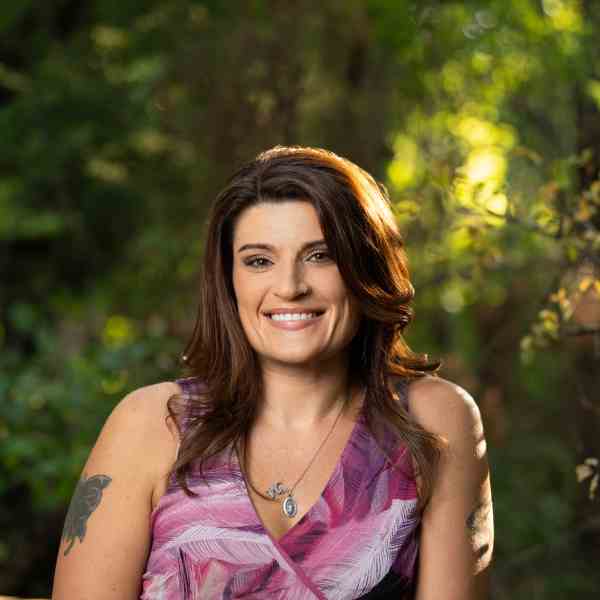There are times in your life when you find that you are becoming consumed with accommodating other people. You can feel like you are taking on their problems and behaviors. This could indicate that you need to set a boundary. This can be difficult if you are a person who doesn’t like conflict and you truly want to help others.
While helping others and living without conflict sounds ideal, it isn’t always what’s best for us. Without healthy boundaries you find yourself pulled into a routine that is detrimental to you and the relationship.
What are healthy boundaries?
Healthy boundaries are limits in a relationship that you set to maintain a productive relationship. These set a precedent as to how you treat others and how you want to be treated. They revolve around cultivating emotional, physical, and spiritual well-being. Boundaries are meant to help us remain in relationships that will encourage us to be better.
Do not be mismatched with unbelievers; for what do righteousness and lawlessness share, or what does light have in common with darkness? – 2 Corinthians 6:14, NASB
Boundaries will enhance mutual respect in the relationships. Healthy boundaries aren’t about promoting control over another person, they simply help each of you preserve the relationship through recognizing the needs of each person.
Healthy boundaries help you to secure your identity while preventing others from manipulating you. Boundaries can also affect how we strive and reach our goals while having compassion. They are the best way to cultivate healthy relationships by being able to stand firm in assertiveness regarding behavior. Setting boundaries will keep you from becoming entangled in toxic relationships.
Do not make friends with a person given to anger, or go with a hot-tempered person, – Proverbs 22:24, NASB
Some healthy boundaries are:
- Being able to say and accept “no”.
- Being able to be flexible but uncompromising.
- Respecting the values and beliefs of others.
- Sharing information when appropriate.
- Communicate needs and wants clearly.
Some unhealthy boundaries are:
- Difficulty accepting and saying “no”.
- Coercive or manipulating actions of others.
- Unclear communication of needs.
- Sharing too much personal information.
- Compromising values and beliefs of self.
“You shall not displace your neighbor’s boundary marker, which the ancestors have set, in your inheritance which you will inherit in the land that the LORD your God is giving you to possess.” – Deuteronomy 19:14, NASB
What are the types of boundaries?
When it comes to setting boundaries there are various areas to consider. The most common areas are physical, mental/intellectual, emotional/relational, financial/material/property, spiritual, non-negotiable, sexual, and time. Each of these areas is an important part of our wellness. These are the areas that we want to protect to maintain wellness in ourselves.
Physical boundaries
These boundaries are those that revolve around your body and your physical needs. You may not be a person who is comfortable with affection displays in public. You may be a quiet person in the morning. Sitting close to strangers may make you feel uneasy. These boundaries are important to ensure that you are physically comfortable and let others know how you define what is allowed in your personal space.
Sexual boundaries
When it comes to having an intimate relationship the most important thing to remember is that it should be a pleasant experience for both people. People don’t like to have a conversation about it for fear of destroying the purity of the experience. However, sometimes this conversation can enhance the relationship by discussing the expected boundaries for each of you.
Mental/intellectual boundaries
These boundaries are those that affect your ideas and thoughts. These would involve those that accept the fact that each person has different views and opinions. Healthy boundaries exhibit respect for the other person’s ideas and thoughts even if they are different from your own.
Emotional/relational boundaries
Boundaries in this area refer to how or what you feel and how or what others feel. This involves the treatment of our emotions as well as the emotions of others. This boundary cultivates a relationship that will help you refrain from taking on the responsibility of their emotions. A healthy emotional/relational boundary will promote acceptance of individuality regarding emotions.
Financial/material/property boundaries
 These boundaries protect your financial and material assets. This would include the right to spend your money as you wish. Material/property boundaries would involve whether or not you choose to loan your personal belongings to others.
These boundaries protect your financial and material assets. This would include the right to spend your money as you wish. Material/property boundaries would involve whether or not you choose to loan your personal belongings to others.
Spiritual boundaries
It’s always tough to discuss spiritual topics with someone that does not hold the same belief as you. Rather than risk a friendship, it’s a good idea to make sure you voice your boundaries when it comes to your spiritual beliefs and practices.
Non-negotiable boundaries
These boundaries are those that are set around situations/actions that are automatic deal breakers. Most of the time these boundaries are set in place for you to feel safe. Some of the issues involved are physical violence, alcohol/drug use, and infidelity. It can also involve issues that would result in harm or death.
Time boundaries
Time boundaries are those that are sometimes overlooked but they are so important. These types of boundaries will affect your well-being in various ways. They can eliminate the feeling of being overwhelmed. Having a time boundary will increase your ability to have a productive day. These will also promote quality time together in a relationship.
How to set boundaries
You have to have self-awareness when it comes to setting boundaries. You are the only one who knows what causes you to feel overwhelmed and anxious. It helps to make a list of your needs in each of the boundary areas. You need a clear idea about the expectations of the boundaries that you set. Being concise will project that you are confident in your decisions.
You want to address the goal of each boundary you set. That will keep you focused on the issue. It’s okay to start with simple and small boundaries. When it comes time to talk about the boundary, be sure to listen to the other person’s needs as well. This will cultivate a better relationship.
Just because you are being assertive doesn’t mean you are trying to control anyone. You are simply wanting to voice the limits that you have when it comes to relationships. You don’t have to address them as if you are afraid to hurt feelings. Being direct and clear on what you like will be easier to convey rather than focusing on what you don’t like.
Healthy boundaries and faith
It’s good to remember that boundaries aren’t to be seen as something negative. They are meant to help us maintain a healthy relationship. This is how God wants you to live. He doesn’t want you to always feel overwhelmed when you choose to serve others. The reason He has asked you to serve is so that you can encourage others through sharing His goodness and love. If you are stressed and overwhelmed you won’t share the joy.
“Take My yoke upon you and learn from Me, for I am gentle and humble in heart, and YOU WILL FIND REST FOR YOUR SOULS. For My yoke is comfortable, and My burden is light.” – Matthew 11:29-30, NASB
Boundaries are a form of direction. They can help you maintain focus on the purpose that God has given you. Healthy boundaries not only keep you focused but they allow you to display the grace and goodness of God’s direction. God says that you need to rest and walk with Him. Healthy boundaries are one way we can remain focused on the good things.
Finally, brothers and sisters, whatever is true, whatever is honorable, whatever is right, whatever is pure, whatever is lovely, whatever is commendable, if there is any excellence and if anything worthy of praise, think about these things. – Philippians 4:8, NASB
Getting help
Setting boundaries can be challenging and you may feel overwhelmed at the thought of setting them. Being able to set clear boundaries takes clear thinking. If you feel confused and aren’t sure what boundaries are issues for you, reach out to a Christian counselor in your area or from this office. You can find assistance in identifying the problem areas and how to best handle them for your peace of mind.
“Vineyard”, Courtesy of Luke Hodde, Unsplash.com, CC0 License
-
Marissa Erickson: Author
Throughout our lives, challenges arise that may be beyond our ability to overcome. Everyone needs a safe space, support, and, at times, guidance to work through those challenges. My goal and purpose is to provide that space and support to help you na...
Recent Posts
-
Kate Motaung: Curator
Kate Motaung is the Senior Writer, Editor, and Content Manager for a multi-state company. She is the author of several books including Letters to Grief, 101 Prayers for Comfort in Difficult Times, and A Place to Land: A Story of Longing and Belonging...
Recent Posts
DISCLAIMER: THIS ARTICLE DOES NOT PROVIDE MEDICAL ADVICE
Articles are intended for informational purposes only and do not constitute medical advice; the content is not intended to be a substitute for professional medical advice, diagnosis, or treatment. All opinions expressed by authors and quoted sources are their own and do not necessarily reflect the opinions of the editors, publishers or editorial boards of Stone Oak Christian Counseling. This website does not recommend or endorse any specific tests, physicians, products, procedures, opinions, or other information that may be mentioned on the Site. Reliance on any information provided by this website is solely at your own risk.






